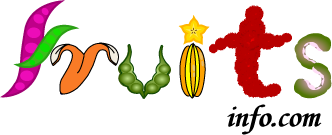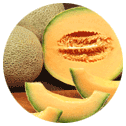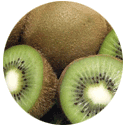Pomegranate Health Benefits And Nutrition Values
The pomegranate fruit is a native of the Mediterranean regions and have been growing there for thousands of years. The pomegranate tree was brought into California by Spanish settlers in the 1700’s. It is mainly grown for fruit production and tree production in the drier parts of California and Arizona. The actual fruit is in pink color to bright red color and the estimated size is that of a softball. One pomegranate contains approximately 100 calories. On opening the pomegranate fruit skin there are little fruit sacs inside that looks similar to vitamin E capsules. Pomegranate juice, vodka, salad dressing, ice cream, salsa, lollipops and gummy bears are made from pomegranate fruits. You can put pomegranate essence on your skin. In the last few years, hundreds of new pomegranate products have come available on the market.

Nutrient |
Amounts/Selected Serving |
DV% |
|---|---|---|
Calcium |
28.2mg |
3% |
Iron |
0.8mg |
5% |
Magnesium |
33.8mg |
8% |
Phosphorus |
102mg |
10% |
Potassium |
666mg |
19% |
Sodium |
8.5mg |
0% |
Zinc |
1.0mg |
7% |
Copper |
0.4mg |
22% |
Manganese |
0.3mg |
17% |
Selenium |
1.4mcg |
2% |
Fluoride |
~ |
~ |
Nutrients |
Amounts/Selected Serving |
DV% |
|---|---|---|
Calories |
234(980 kJ) |
12% |
Carbohydrate |
191(800 kJ) |
~ |
Fat |
27.6(116 kJ) |
~ |
Protein |
15.8(66.2 kJ) |
~ |
Alcohol |
0.0(0.0 kJ) |
~ |
Nutrients |
Amounts/Selected Serving |
DV% |
|---|---|---|
Cholesterol |
0.0mg |
0% |
Phytosterols |
~ |
~ |
Nutrients |
Amounts/Selected Serving |
DV% |
|---|---|---|
Total Fat |
3.3g |
5% |
Saturated Fat |
0.3g |
2% |
Monounsaturated Fat |
0.3g |
~ |
Polyunsaturated Fat |
0.2g |
~ |
Total trans fatty acids |
0.0g |
~ |
Total trans-monoenoic fatty acids |
~ |
~ |
Total trans-polyenoic fatty acids |
~ |
~ |
Total Omega-3 fatty acids |
~ |
~ |
Total Omega-6 fatty acids |
223mg |
~ |
Nutrient |
Amounts/Selected Serving |
DV% |
|---|---|---|
Vitamin A |
0.0IU |
0% |
Vitamin C |
28.8mg |
48% |
Vitamin D |
~ |
~ |
Vitamin E(AlphaTocopherol) |
1.7mg |
8% |
Vitamin K |
46.2mcg |
58% |
Thiamin |
0.2mg |
13% |
Riboflavin |
0.1mg |
9% |
Niacin |
0.8mg |
4% |
Vitamin B6 |
60.2mg |
11% |
Folate |
107mcg |
27% |
Vitamin B12 |
120.0mcg |
0% |
Pantothenic Acid |
1.1mg |
11% |
Choline |
21.4mg |
~ |
Betaine |
~ |
~ |
Nutrients |
Amounts/Selected Serving |
DV% |
|---|---|---|
Total Carbohydrate |
52.7g |
18% |
Dietary Fiber |
11.3g |
45% |
Starch |
~ |
~ |
Sugars |
38.5g |
~ |
Nutrients |
Amounts/Selected Serving |
DV% |
|---|---|---|
Protein |
4.7g |
9% |
Nutrients |
Amounts/Selected Serving |
DV% |
|---|---|---|
Alcohol |
0.0g |
~ |
Water |
220g |
~ |
Ash |
1.5g |
~ |
Caffeine |
0.0mg |
~ |
Theobromine |
0.0mg |
~ |
- Fights Breast Cancer
- Lung Cancer
- Alzheimer's Disease Prevention
- Diarrhea
- Pregnant Woman
- Benefits
- Constipation
- Anemia
Pomegranates are rich in source of type phytonutrient called ellagic acid, which belongs to a larger group of compounds known as ellagitannins. These are water-soluble, which makes them for the body to absorb easily. Naturally occurring ellagitannins (found in fruits such as pomegranates, raspberries, and others), are broken down into ellagic acid, glucose, and other substances. The news release from the phytonutrients have the ability to “suppress estrogen production that prevents the proliferation of breast cancer cells and the growth of estrogen responsive tumors.”
The ellagic acid found in pomegranates inhibits aromatase, an enzyme that transforms androgen to estrogen. Because aromatase plays a main role in breast cancer, the ability of pomegranates to suppress this enzyme means then they have the potential to inhibit the growth of breast cancer.
Lung cancer is a lethal disease, fatal in over 50 percent of diagnosed cases within the first year. In addition to smoking, other causes are asbestos, naturally occurring radon gas, environmental toxins and your genetic inheritance. Early symptoms of lung cancer can include exhaustion, persistent coughing and chest pain. As the disease progresses, tumors grow in your lungs and breathing can become difficult, especially after exercising. If you are coughing up blood, see a doctor immediately.
It may prevent and slow Alzheimer's disease. By consuming pomegranate the polyphenols present in this pays the way to reduce this disease.
Pomegranates as a sure way to cure diarrhea. use of this fruit truly amazing as a natural way to stop diarrhea, help with stomach ailments, and stopping blood from passing with stool in diarrhea.
diarrhea treatment is to drink pomegranate juice once a day. This could actually prevent diarrhea from occurring. Or, if you do develop the “runs”, it can have a constipating affect and help you to feel better. The juice also seems to inhibit inflammation, so it’s good to include in your daily regimen to help stave off other stomach problems as well.
Pomegranate juice also been helpful for those experiencing morning sickness, general nausea, and for increasing a poor appetite. It seems to keep bacteria from sticking to the lining of the stomach walls, preventing stomach problems from having a chance to fully develop and cause uncomfortable symptoms.
Pomegranate fruit and its juice, pomegranate is also found in the forms of extract, powder, pill and capsule for medicine uses. Pomegranate fruit and juice are healthy ways for you to get vitamins during pregnancy.
Pomegranate is a source of fiber, which can keep your bowels moving and help to prevent hemorrhoids and constipation during pregnancy. one pomegranate can provide about 40 percent of your daily recommended intake of vitamin C, which is needed to help develop your baby's bones and teeth. Pomegranate also has antioxidant properties and may even reduce blood pressure.
The pomegranate fruit is considered to be a laxative and used for constipation. Fruit should be taken about 100-200 gms in morning and evening. It helps to increase peristaltic movements of the intestines and there by helps to relieve the constipation.
The pomegranate fruit is efficient in case of anemia. It helps to increase the hemoglobin content in the blood, as it is rich in iron content. Pomegranate is to be taken about 200gms in the morning in empty stomach.
PERSON WHOM MAY NOT CONSUME POMEGRANATE:
- Pregnancy & Breast-Feeding
- Allergies
- Surgery
Pomegranate SAFE for pregnant and breast-feeding women. If you use pomegranate, stick with the juice during pregnancy or breast-feeding. Check with your healthcare provider first.
People with plant allergies seem to be more likely to have an allergic reaction.
Pomegranate affects those who have blood pressure. This can interfere with blood pressure control during and after the time of surgery. Stop taking pomegranate at least 2 weeks before a scheduled surgery.

















